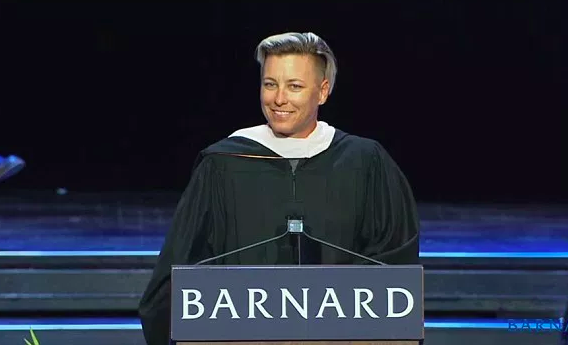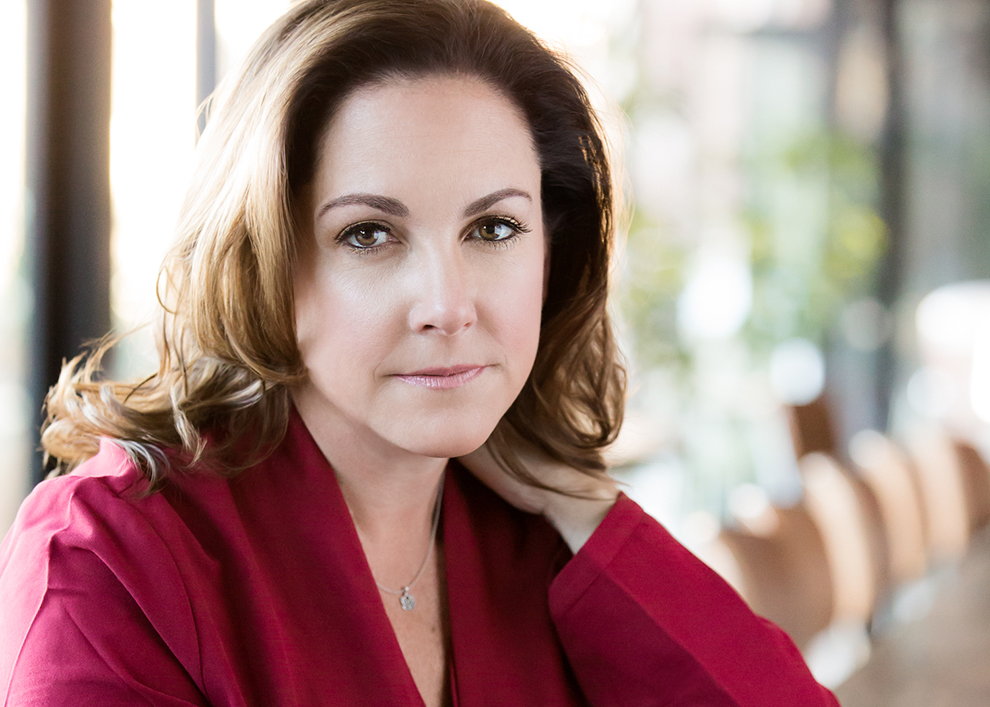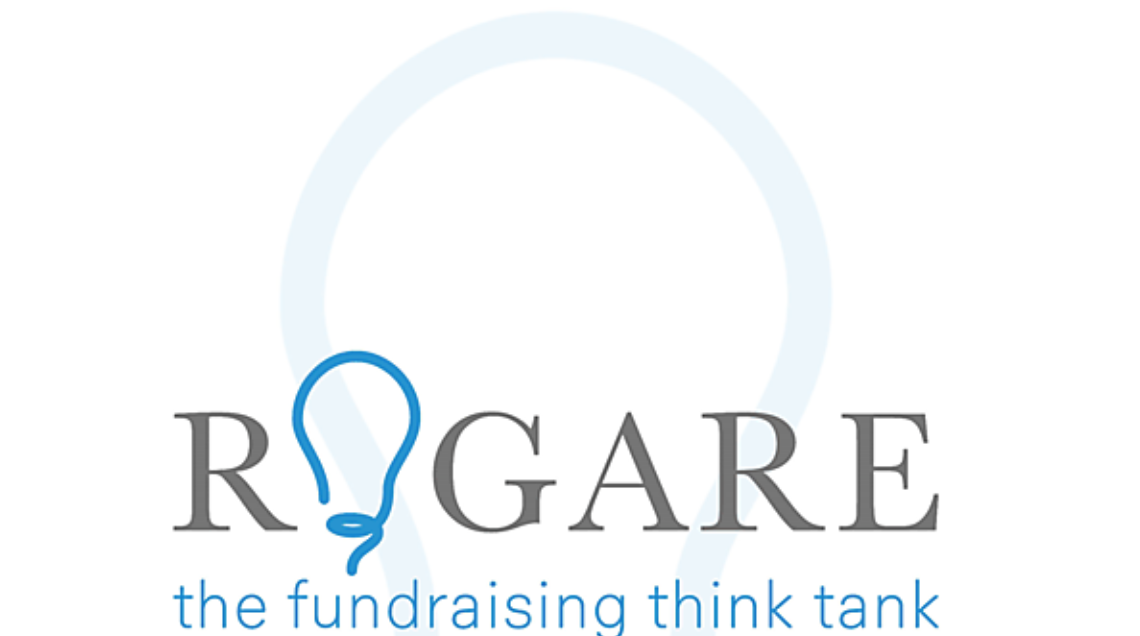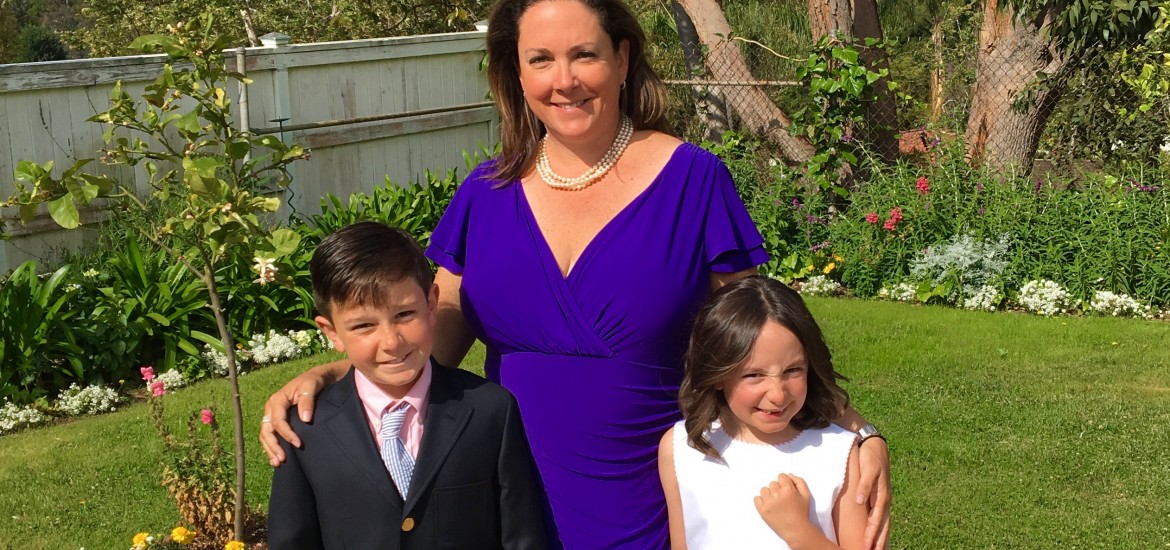Welcome to WordPress. This is your first post. Edit or delete it, then start blogging!
Make Failure Your Fuel
As summer and my birthday approach this time of year I am always reminded of how we are constantly afforded the opportunity for new beginnings. Graduations, summer adventures, old chapters closing and new doors opening. Yes, it’s a romantic view of our time rotating around the sun and no surprise, I’m a sucker for commencement speeches. Abby Wambach recently delivered the commencement speech at Barnard College and it blew me away. Wambach, 37, is a two-time Olympic gold medalist in soccer and Women’s World Cup champion and happens to have scored more goals than any man or woman in history. That data point alone piques my interest as a former soccer player (turned soccer mom!)
The whole speech is worth watching (or reading).
She offered four rules and how to live by them: Make failure your fuel. Lead from the bench. Champion each other. Demand the ball.
One of my favorite parts of her speech is this: “Failure is not something to be ashamed of, it’s something to be powered by. Failure is the highest octane fuel your life can run on. You gotta learn to make failure your fuel.”
In the spirit of disruption and ridiculous ideas from the blog post last week, you have to be willing to fail if you want to see real change. The challenge is what you do with that failure and how to let it fuel the change you desire. Wambach points out that athletes fail all of the time. It’s part of their experience and what makes them better. Failing helps you understand your will to win, and it also teaches you HOW to win.
Abby’s perspective on championing each other is also important. How we hold one another up, connect with others and find common ground is where the action is. “Joy. Success. Power,” Wambach said. “These are not pies where a bigger slice for me means a smaller slice for you. These are infinite. In any revolution, the way to make something true starts with believing it is. Let’s claim infinite joy, success and power — together.”
General Disruption
In the category of random and possibly inappropriate nicknames, I had a former boss who used to refer to me in public as “General Disruption.” She gave me the nickname because, as she put it, I was there to disrupt the ways in which the organization was thinking about and tactically fundraising. Of course, while that sounds sexy, in practicality, it is something else altogether and often hard to implement. Disrupting organizational behavior, managing change and transformation, indeed, being disruptive, is HARD WORK! It’s funny now as I look back at my 25+ year career in development; it would appear that I’ve been “General Disruption” several times…maybe I need a new baseball hat! 😉
Change starts with the courage to recognize the need for it while staying grounded in your core values – it’s important to let your values be your North Star. Dan Palotta, who runs the Bolder Board Training, recently shared the thoughts below about a recent visit to Australia and the Sydney Opera House. Don’t be afraid to be ridiculous – to be disruptive. It’s where the real action is!
Dan writes, “The idea to build the Opera House was ridiculous. The architect who designed it, Jørn Utzon, was an unknown 38 year-old Dane when his entry was announced as the winner in an international competition. His vision for a “sculptural, curved building on the Harbour” broke radically with the linear shapes of modernist architecture. And here’s the thing: in the 1960s, they had no idea how to build it. You know those iconic shells or sails that define it? The challenge of how to build them confounded the engineers working on it for years, even after the foundation had been poured! Imagine pouring a foundation for a building you don’t yet know how to build!
Pouring that foundation, without knowing how to build the building, was a commitment – a declaration of possibility. It was impossible, but their commitment to it transformed it into reality. It now not only defines that city, but in many ways that nation.
Imagine if it had never been built. Imagine if some expert put a stop to it because of its ridiculousness.
If you’re not being ridiculous, you’re not exploring your true potential, as an individual or an organization. Everything in the world that makes us go “Wow,” was born of some absurd human being with a ridiculous, impossible idea — from the Eiffel Tower to landing on the moon to the idea of America herself. We are taught that prudence is sophistication. The opposite is true. Ridiculous is what really tests us. Stretches us. Forces us to use the full measures of our intelligence, creativity, fortitude and strength.
Anything less and our true potential for intelligence, creativity, strength and fortitude gets left on the table, never to see the light of day.
Resist the temptation to be safe, cautious and normal. Resist it in all things. Resist it with every fiber of your being. Lives are at stake in our work. Be ridiculous on their behalf.”
Read more about the Bolder Board and Dan.
Love: The Heart of Fundraising
About three years ago my life was crumbling. My marriage was over, I was trapped in a job I didn’t love, was working insane hours for a very difficult person and it was taking everything I had to hold it all together – for me and for my two kids. I was laying up in bed at night crying my eyes out and praying for some glimmer of hope or sign to point me in a new direction. My bucket wasn’t just empty, it had holes it in that seemed beyond repair.
I really couldn’t understand how everything I had worked so hard for seemed to be falling apart – I felt like a complete and utter failure; was my life over? I was invited by a friend to sit in on her Board retreat to observe the facilitator. I was mildly receptive to the invitation. I figured I had nothing better to do; I was feeling very cynical, and basically just went in on autopilot ready to be as critical and harsh as possible. I was closed. As I sat there, I watched a very skilled fellow professional fundraiser talk about this work and what it means. I was challenged in a way that was unfamiliar. And I was pissed. I was being asked to think about my story of self, about why I do this work, what it means to me and how it feels – I was NOT being taught the finer details of Board governance, or how to make the perfect ask. I was being asked to take money OUT of the center of the equation/conversation and think about how giving is an act of love; and how the work of fundraising is, in fact, about facilitating the movement of resources, yes, but more importantly, it is about love.
Why do I do this work? Love!? Yeah right I thought.
Fast forward to six months later and I found myself sitting alone in my house – (kids are at their Dad’s) and I am surfing the web…I find the Course on Exponential Fundraising at the Harvard Kennedy School, taught by that same facilitator, and with a full glass of Pinot Noir, I go ahead and apply online. Now, I’m a Chico State graduate and the idea that Harvard would look twice at me was laughable at best. I hit submit.
By this time I was seriously contemplating leaving the nonprofit sector altogether – opening a deli sounded like a good idea. I make a great sandwich. The idea that I would be accepted into a Harvard program seemed ridiculous. Well, the joke was on me. I got in!
So I came to Cambridge in September 2017 with a relatively open mind, but my heart was still, well, closed. I found myself in the company of 40 other professionals from all over the world, with different perspectives, struggles and stories…all of my insecurities came out, “Am I smart enough? Do I have anything of value to say or offer this group? If I’m quiet maybe no one will know I don’t belong here.” Yikes!
Our teacher was insisting upon total vulnerability and authenticity..never mind intellect. She wanted our hearts in the room. I couldn’t run, and I couldn’t hide. Ugh. For 4 days we talked about fundraising, systems entrepreneurship, about adaptive leadership and all of the other Harvard things you can imagine. AND we also talked a lot about love, and about how to show yourself to another person and about how to tell your story to connect to another. THAT she said, is what makes things happen – when people connect in real ways, love happens, and then resources move – that she offered, is the heart of fundraising.
Yup.
Today I completed the program and my second and final week in Cambridge after a full year of distance learning. I am changed forever. I have a completely new framework to approach work I DO love in new and unexpected ways. Why do I do this work? It IS because of LOVE! Who knew?! As I head to the airport soon to go home, I am energized, excited and I am ready to keep trying to change the world, and that work starts with me. My heart is finally open. I thought my world was crumbling three years ago, and maybe it was, but now it seems it was just my time to re-imagine my work (and my life) and start again. THANK GOD!
As we concluded the program today we were asked to write our own version of the Hippocratic oath…in the spirit of transparency and accountability…here’s mine. What’s yours?
My Oath
Sterrin Bird
May 10, 2018
Harvard Kennedy School of Government
I believe that we are all doing the best we can. I believe we are all works in progress.
I will strive to really see others and let myself be seen.
I will come from a place of acceptance and invitation in all of my interactions – starting by accepting myself.
I will remember my experiences, my pain, my joy and my challenges – I will hold them and own them as uniquely mine. Knowing that everyone has stories; I will share my stories freely and with implicit trust (and humor) to make space for others to do the same.
I will create connections – share my connections and share my resources and knowledge with others without reservation.
I will not be ashamed to say “no, I don’t know, or I don’t know how” and I will be willing to reach out and ask for help, perspective and support when I need it.
I will try to remember that I am enough, there is enough and that if I come from a place of gratitude and acceptance of myself and others that I am inviting LOVE to expand around me.
I will remember that issues divide us and values unite us and work in all of my interactions to find shared values.
I will share the truth of my lived experience with my children and help them learn to live their truth and tell their stories so that they can live in a place of gratitude, connection and in community with others.
I promise I will never give up.
Featured as a Modern Women Making Waves
This is an interview I did with Jane Inch for Modern Women Making Waves!
For Sterrin Bird, founder of Pacific Advancement Partners, nonprofits are never ‘business as usual’ – creative and innovative thinking can support their missions with maximum positive impact. A nationally recognized leader in the nonprofit community, Sterrin has more than 25 years of experience in service to philanthropy, with an emphasis in capital campaigning and major gifts. She has held a number of significant leadership roles within some of the most prestigious organizations in the country. Her experience is extensive and impressive.
She inspired me with her authenticity when I met her many years ago through the Junior League of San Francisco. I quickly learned that she is the go-to gal when it comes to nonprofit fundraising: smart, savvy, a straight-shooter…and someone I instantly wanted to know better. We’ve been sharing stories, cocktail time and laughs ever since. In her free time, Sterrin can often be found enjoying summer sunshine or winter skiing at Lake Tahoe with her two children Thomas and Mary.
For more about Sterrin and Pacific Advancement Partners click here
Casual Conversation with Sterrin…
Good advice is a gift — what is the best advice you’ve been given?
The very best advice I’ve been given is to bring your authentic self to everything you do – to pretend you are anything other than exactly who you are in business (or anywhere else) is doing you, your colleagues, friends and family and the organization you serve a disservice. It can be very scary to show up as yourself, warts and all – especially if you’re having a bad day or have challenges going on personally – but you need to always be authentic – because it builds character and trust in YOU – from the inside out.
What is on the top of your bucket list?
The top of my bucket list? That’s a good one. I’d really like to spend a month in Italy – I’ve never been there and I’d love to go and immerse myself in the culture, the people and (of course) the food and wine. I’m aiming for summer 2017!
Who would you invite to your ideal Girl’s Night?
Famous people? mmmm – I’d love to have dinner with Michelle Obama, Chelsea Handler and Joni Mitchell – with a side of Wanda Holland Greene!
Regular people? My 4 best girlfriends who are all so different from one another
What is your go-to piece of clothing?
A crisp white blouse from Lafayette 148 NY – it’s a classic and can be dressed up or dressed down…
What do you sing when you are alone in your car?
These days Mat Kearney – I love his music…especially the album City of Black and White…and if I’m with my kids, it’s usually Taylor Swift…yes, I’ll admit it!
What is the best compliment you have received?
The best compliment I ever received was from a former colleague who said that I showed her what leading from the front of the room looked like – she said that I showed her (and others) that it was possible to be a mom, be real, tell the truth and be vulnerable while leading a huge national team through an enormous re-organization with humor and grace.
Runner up would be that people always compliment me on my skin…I’m blessed with good genes and look younger than I am…
How has your life been different than you imagined?
I never imagined that I would be divorced and raising two kids while balancing and managing a career on my own – but here I am, doing exactly that. I also never imagined that I would be as happy as I am doing just that while standing in my own power.
What is your most-used word? (And what word do you wish everyone would stop using?)
It’s not a word – it’s an expression…I am always asking people if I am making sense while I am expressing myself – it’s a way to get feedback in the moment –
Who is your celebrity crush?
George Eads
What is your guiltiest pleasure?
Expensive Red Wine
What is your favorite museum?
Musee d’Orsay in Paris…I love that they turned a train station into a magnificent museum
What is the first thing you notice when you meet someone?
Their eyes….I always look for smile lines…you can’t hide that kind of genuine happiness and I want to be around it…
From Fiji With Love
“The heart, however, wants to connect us and wants to share. It wants to show us that there are no differences and that ultimately we are all the same. The heart has an intelligence of its own, and if we learn from it we will know that we keep what we have only by giving it away. If we want to be happy, we make others happy. If we want love, we have to give love. If we want joy, we need to make others joyful. If we want forgiveness, we have to forgive. If we want peace, we have to create it in the world around us. If we want our own wounds to be healed, we have to heal others.”
Into the Magic Shop, James R. Doty, MD
I was recently given the gift of 10 quiet days of solitude on Turtle Island, Fiji to reflect and regroup after a very busy 2016 full of change and challenge. Like many of you, my year was full of a lot of work and family obligations – and much of it ended up being surprising and, yes, even shocking! Certainly tiring! During this time in Fiji I read the book Into the Magic Shop by Dr. James Doty at the recommendation of my friend Karen Rhodes. The quote above resonated with me on many levels which is why I share it with you today – and within the context of how fundamental philanthropy (love of mankind) is to our well being as individuals and as a larger global community.
As 2016 wound down, I found myself at a meeting with many of the very brightest minds in the social sector – people who are challenging the status quo in the world of philanthropy with a deep commitment to enabling donors, organizations and entire communities to come together to solve so many important social issues. We discussed in great detail all of this on the eve of the U.S. election and watched in fascination, along with the rest of the world, about how all of the ‘experts’ got it wrong in predicting the outcome. Many said aloud, “how could this happen?” As we met together the morning after the election, and discussed the challenges in our industry, the trends, the data and how to effect change in the industry, I was struck by how this is a remarkable opportunity.
Regardless of your opinion about the outcome of the election, we all agree that there has been a seismic shift – a demand for change! And, while yes, there is despair and disappointment, there is also a remarkable opportunity ahead of each and every one of us.
Our nation is built upon a foundation of people coming together to effect change – in large and small ways. Our hearts want to connect – we want to connect as a people, as a community, to be a part of something larger than ourselves. It is in our nature. We are stronger together. We do, in fact, want to take care of one another. And in our country, WE do this in large and small ways – $375 billion ways annually – to be exact…
So as I sat in the meeting thinking “deep thoughts” with “very smart people” it occurred to me that the opportunity for people to step forward and face their fears about the direction of this country, or even the world, was right here, right now.
The time is now for each and every one of us to examine the people, the causes and the issues that are important to us and to step up, step forward and to connect. Let’s lead with our hearts, with intention, like Dr. Doty suggests, and effect the changes needed to solve even the most complex social issues, and dare to face our despair and disappointment with our philanthropy; with our love.
Rogare: The Fundraising Think Tank – Philanthropy Consultant
Rogare: The Fundraising Think Tank
As a Philanthropy consultant I realized that our modern society, particularly in North America, celebrates independence, forward thinking and innovation with a fervor that is deafening. That’s why the focus of this article is Rogare: The Fundraising Think Tank. Our freedom, independence and self-reliance is acknowledged, recognized and celebrated as the foundation upon which the United States of America was founded. That said, it is also under severe scrutiny particularly relative to how technology and our reliance upon it both keep us connected to one another constantly and how it also isolates us from one another by putting the devices and the channels in place between us that keep us from being in one another’s company; in dialogue with each other, face-to-face, shoulder-to-shoulder in a very important human way. As a Major gifts fundraising and philanthropy in general is, by definition, a very human endeavor – it is, therefore, in my opinion, in conflict with the trajectory we are on as a larger community of people virtually connected all the time but seldom with one another.
Our current trend has us celebrating our independence and self-reliance at the expense of creating a real sense of community. We need look no further than Maslow’s hierarchy of needs to remember and understand that the most fundamental and basic needs of any person are esteem, friendship and love and security. How will our ‘modern’ sense of community re-define how we relate to one another on a very human level? How will our new paradigm of community effect philanthropy and the third sector as new generations grow up in an environment virtually connected and, perhaps, not truly connected with one another?
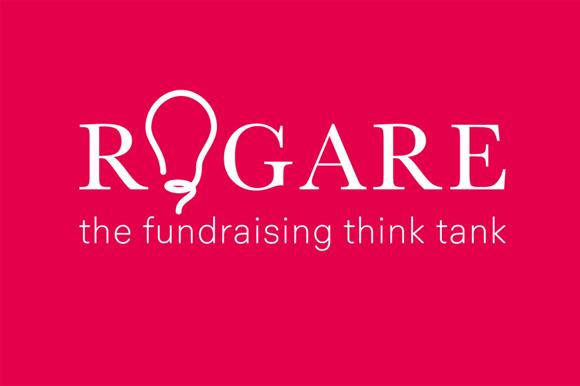
Examining the Future From a Philanthropy Consultant
This shift in how we are relating to one another is a remarkable challenge facing fundraising now and in the future. Our ability to be with one another, examine social issues, discuss and understand the problems and challenges we face as a global community is waning as a result of our reliance on the passivity of being virtually connected. The issues we face today and in the future that will be addressed through the third sector and with the support of major gifts will require us to come closer not further apart – to show our strength in numbers. The NGOs and non-profit organizations founded to meet these needs will need to focus more on relationship-based fundraising which may be in conflict with how our constituents have ‘grown up’ in a world of virtual community.
To tackle this problem we must seek to understand more deeply the importance we place on social media, technology and the psychosocial impact that is having on how people interact and relate to one another and understand social issues. We must also equip fundraisers with those tools to connect with donors in a way that seeks to understand them as people and give them a highly personal experience that encourages the more human interactions that elevate esteem, friendship and love and security in an effort to realize the kinds of human interactions that lead to transformational thinking, yes, but also to the deeply personal transformational giving that will be needed to fulfill the missions of the NGOs and non-profits of today and tomorrow. You can read more on Rogare – The Fundraising Think Tank here.
Reflections from The Marymount Alumna of the Year
I was the Marymount Alumna of The Year
It isn’t very often that we are afforded the benefit of time in our busy lives to pause and reflect about our path and the twists and turns that have led us to where we are today with a full understanding of of the impact that people and places have had on our formation. I was lucky enough last weekend to be given that opportunity and was reminded, once again, about the importance of education, access to it and of the importance of giving back.
Last weekend I was honored by my high school, Marymount Los Angeles, as the Alumna of the Year. This was an honor I didn’t fully appreciate at first, but then as I walked the campus of Marymount again after so many years, with my two young children at my side, I realized that the honor was not actually about me and my accomplishments, but that it was actually a reminder about my continued responsibility of being an example for others to follow.
As I explained during my remarks following receiving the award;
“I stand before you as an example of the power of giving a young woman access to an education that her family couldn’t otherwise afford. I am who I am today because of Marymount, yes, but also because some generous soul decided that financial aid and access to education was important enough to create a financial aid program at Marymount. Because someone made a GIFT to make that happen. I stand upon the shoulders of the RSHM and the Marymount women that came before me because of the generosity of others. I only hope I can live up to the example that was set for me and be an example of generosity for others to follow – to be that example to my community and to, of course, my children, Tommy and Mary.
The last time I sat in this chapel was the week before my high school graduation in 1988. At that time, I was not entirely sure what the world had in store for me, how I would turn out, or what would happen to me with such an uncertain future. But as I sat in conversation with Sister Collette that day, she told me I would graduate with honors and move on to college. She also said, in the words of Thoreau, ‘Go confidently in the direction of your dreams! Live the life you’ve imagined.’ Then she said, keep in touch.”
With that in mind, it is important for all of us to remember where we’ve come from, not in a boastful and self-involved way, but in a thoughtful way to inform our path forward. I have spent my life in service to others, striving to build community wherever I go, to be an example for others and in service to philanthropy – which, by definition means ‘love of mankind’ – someone believed enough in ‘mankind’ to make that gift to Marymount without even knowing me, and it changed my life forever. What will you do today to change and touch the life of a person you’ve never met?
Role of Advancement in Public Higher Education
Role of Advancement in Public Higher Education
The Role of Advancement in Private philanthropy in support of public higher education has become increasingly important in the last decade to fill the gap between the rising costs of higher education and limited state funding. One need look no further than the State of California to understand the severity of how the state budgets impact our institutions of higher learning and our students. California students are being “priced out” of CSU and UC schools, classes are being cut, it is virtually impossible to gain the credits needed for certain majors or graduation within four years, student loan debt is skyrocketing, financial aid and scholarships are limited, and the community college system is overenrolled and in some cities at the point of collapse.
The importance of the role of University Advancement in this current climate cannot be overstated, particularly for public institutions. The ability of a public college or university to position itself as worthy of both public and private support has never been more crucial – schools need to be able to respond to the needs of students, faculty and staff in order to remain competitive. The sound investment in best practices of advancement loosely defined as; marketing, public relations, alumni relations, fundraising and government relations is necessary for the very survival of many of these schools today.
To borrow an expression from our colleagues in academic medicine, the university advancement function within a college or university, public or private, is the ultimate example of trans-disciplinary collaboration. The disciplines within a complex and fully developed advancement office are diverse and to some degree operate independent of one another, but ultimately, they are each wholly dependent on one another to succeed within the grander vision. Advancement must be managed at the highest level and completely aligned with the strategic plan of the university and done in close collaboration with colleagues across the institution.
A successful advancement office is constantly working not only on the messages and marketing of today, but looking ahead to what the trends and future may bring. Advancement professionals are forever benchmarking, evaluating, making course corrections, branding, and writing policy. All of this constant work is happening while the equally important, yet very different, work of building very personal relationships with hundreds if not thousands of friends and donors is on-going with the hope that when the time is right, or the need is greatest, we will be able to count on them not only for their loyalty, but for their financial support.
The messages, marketing, communications and policy work must be constant, consistent and transparent to all constituencies in order for the dollars to be realized to offset the challenges faced by, particularly, public institutions of higher learning. The advancement function exists to support the school and its mission of educating young people. The coordinated leadership of an advancement office is so important in these competitive times.
A few final thoughts; the role and perceived success of a University Advancement office could be summarized with two words: access and opportunity.
A successful advancement program within public higher education provides ACCESS.
- Access to all students, regardless of socio-economic standing, the pursuit of a degree through affordable tuition, financial aid and scholarships.
- Access for the University President, government relations staff and Trustees the resources needed to enable them to advance the strategic vision of the campus, both locally, statewide and nationwide.
- Access for students to cutting-edge educational opportunities both while they are in the school and after, when they become alumni through a ‘valued alumni network.’
- Access to coursework, classes and degree programs.
A successful advancement program within public higher education provides OPPORTUNITY.
- Opportunity to respond to the changing economic climate without interruption of service to students, faculty and staff alike.
- Opportunity to take advantage of the latest technology both inside and out of the classroom.
- Opportunity to be nimble enough to provide the newest and most advanced teaching methods to faculty and staff through professional growth.
- Opportunity for the administration to recruit and retain the best and brightest faculty and staff for the students.
- Opportunity to dream big.

